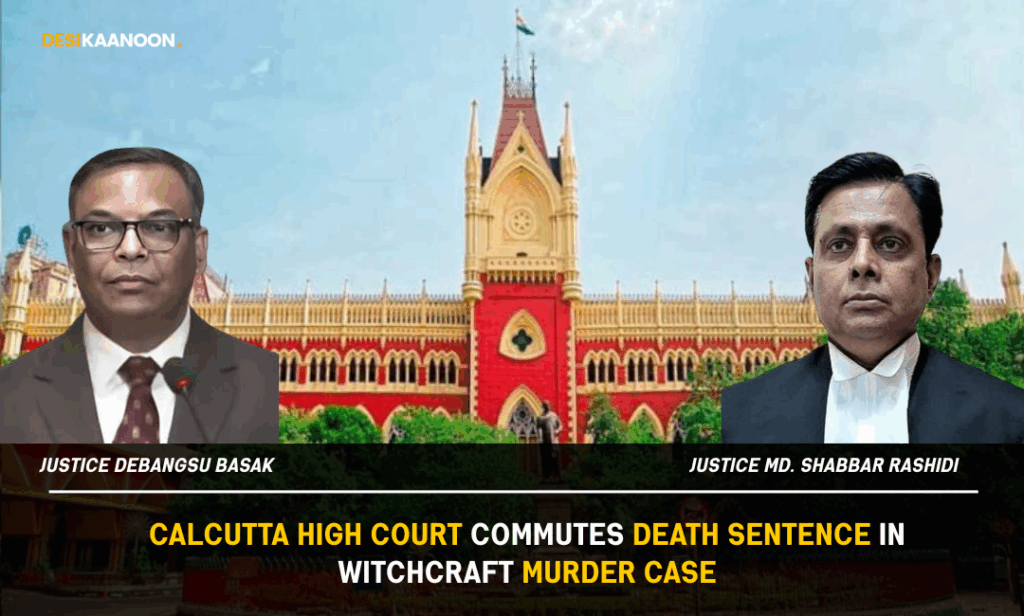Akhya Pandey
The Calcutta High Court has commuted the death sentence of Jagannath Barman, who was convicted of beheading a woman in 2018 on suspicion that she practised witchcraft. A division bench of Justice Debangsu Basak and Justice Md. Shabbar Rashidi ruled that while the act was undeniably brutal, it did not fall under the “rarest of rare” category that warrants capital punishment.
The incident took place in the Alipurduar district of West Bengal. Jagannath Barman had entered the house of Maloti Barman, a 55-year-old woman, and attacked her with a sharp weapon, brutally beheading her in front of her family. He believed that she was responsible for the misfortunes in the village due to alleged witchcraft. His arrest and trial followed soon after, and in 2021, the Sessions Court had sentenced him to death under Section 302 of the Indian Penal Code (murder).
When the matter came before the High Court in appeal, the judges upheld the conviction, stating that the evidence left no doubt about Jagannath’s guilt. However, while confirming the brutality of the act, they considered whether the death penalty was the only fitting punishment. They referred to landmark Supreme Court cases like Bachan Singh v. State of Punjab (1982) 3 SCC 24 and Machhi Singh v. State of Punjab (1983) 3 SCC 470, which set the standard that the death sentence should only be imposed in the “rarest of rare” cases where alternative punishments are unquestionably inadequate.
The Court noted that though the crime was driven by superstition and was deeply disturbing, it also had to consider the possibility of reform and rehabilitation. There was no record of previous criminal behaviour, and nothing to suggest that the convict was beyond reformation. In such circumstances, the Court found that life imprisonment would serve the ends of justice.
The High Court therefore modified the punishment to rigorous imprisonment for life, clarifying that it would mean incarceration for the rest of Jagannath Barman’s natural life, without remission. This decision reflects the Court’s effort to strike a balance between condemning violent acts rooted in dangerous beliefs and ensuring that the punishment aligns with constitutional principles and precedents.
This case is a grim reminder of how deeply embedded superstitions like witch branding continue to cost lives, especially in rural parts of India. At the same time, the judgment reinforces the importance of due process, the right to life, and the role of the judiciary in upholding constitutional values, even in emotionally charged cases.
Case Name: State of West Bengal vs. Radha Kanta Bera
Case Number: CRA (DB) No. 169, 2023
Bench: Justice Debangsu Basak and Justice Md. Shabbar Rashidi
Instagram: Click Here.
LinkedIn: Click Here.
For Collaboration and Business: Click Here.

